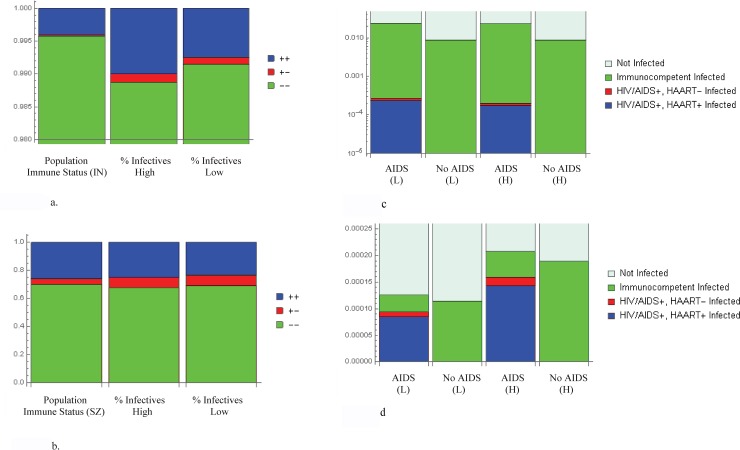Fig 2. Immune status-based contributions to emergence, and infectivity with and without HIV/AIDS.
In both Indonesia (2a) and Swaziland (2b), and under conditions of both high (H) and low (L) TB prevalence, AIDS-immunocompromised hosts are individually responsible for considerably more emergence that would be expected given their prevalence in each country. (We have made the simplifying assumption that HIV/AIDS+, HAART+ hosts are functionally immunocompetent except with respect to loss of immune memory.) Under conditions of high (H) and low (L) TB prevalence, we compare health status-based TB incidence in Indonesia (2c) and Swaziland (2d), visualizing conditions of both actual and zero HIV/AIDS prevalence. In both countries, AIDS increases total incidence. In Swaziland, when TB prevalence is low, we observe an increase in incidence of 9.6%, relative to the AIDS-absent condition; when TB prevalence is high, the relative increase in incidence is 9.9%. In Indonesia, the changes in TB incidence are much more pronounced, with an observed 167.9% increase when TB prevalence is low and a 167.12% increase when TB prevalence is high. Immunocompetent. (We assume 20% adherence to antibiotics, except where specifically noted. [25]).

